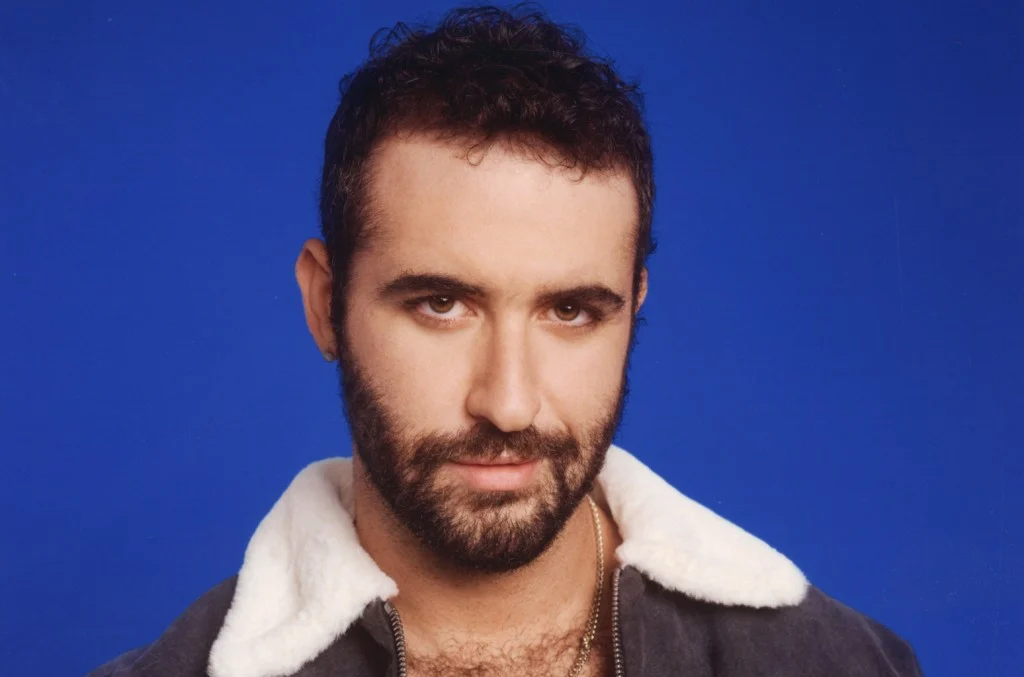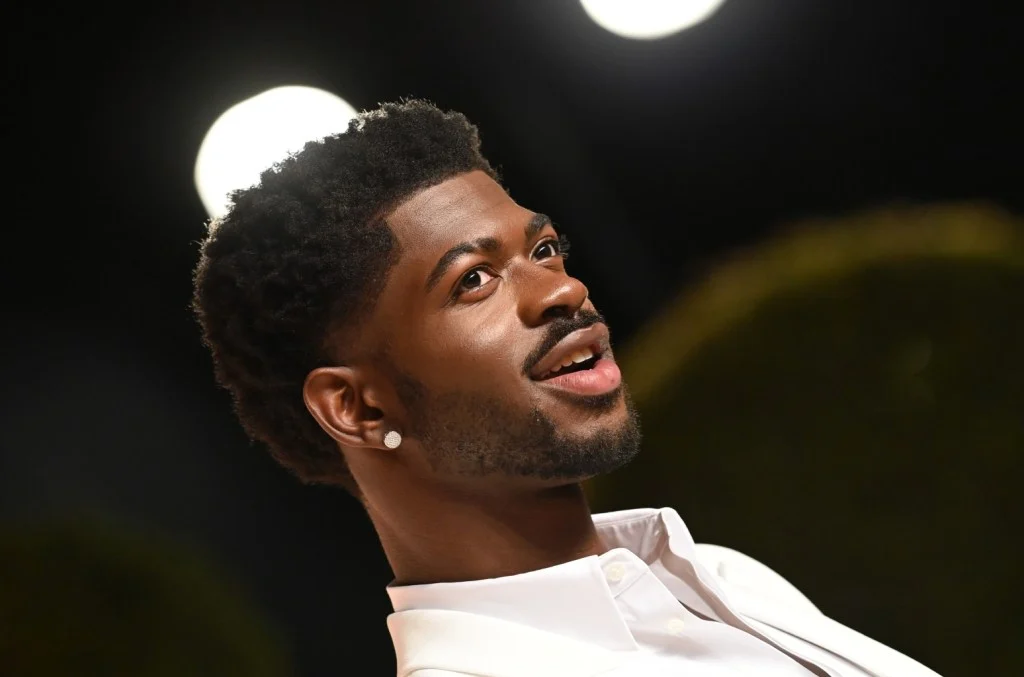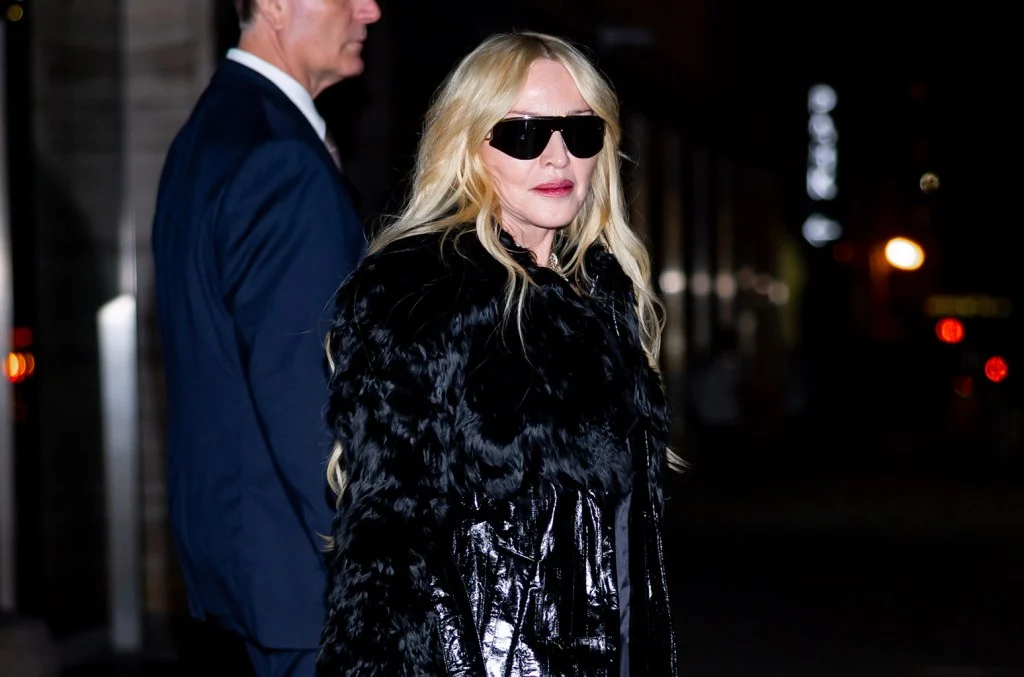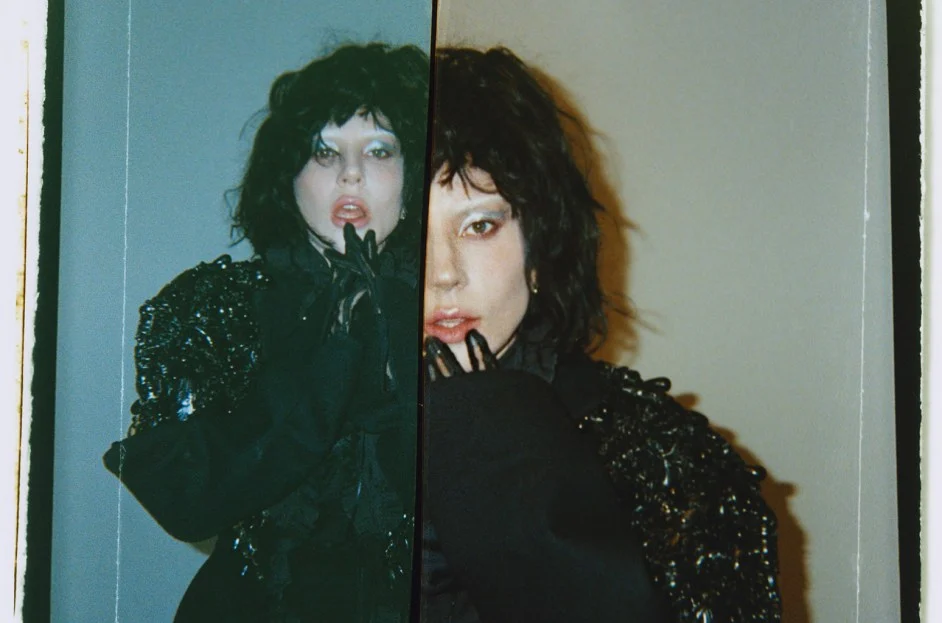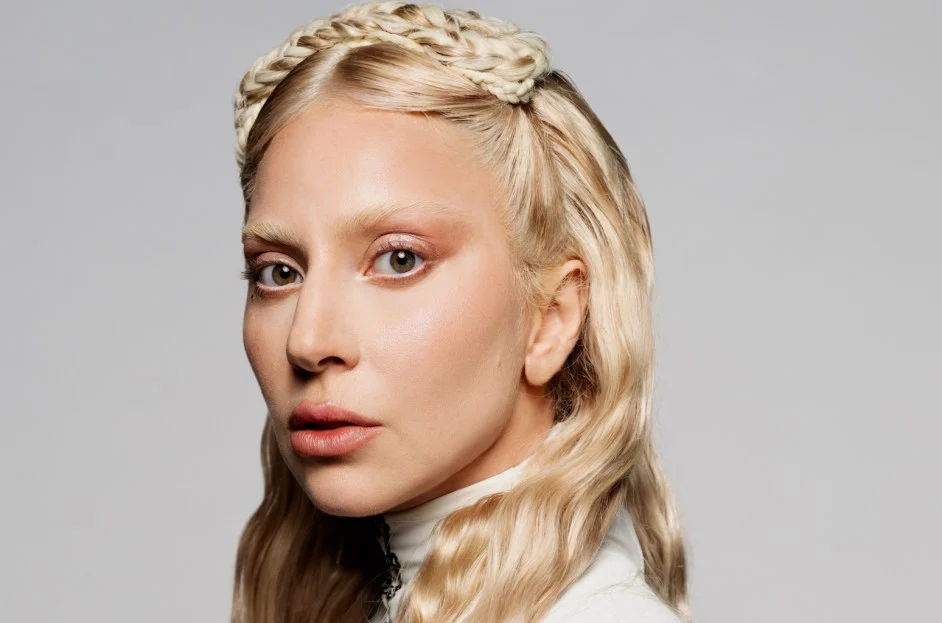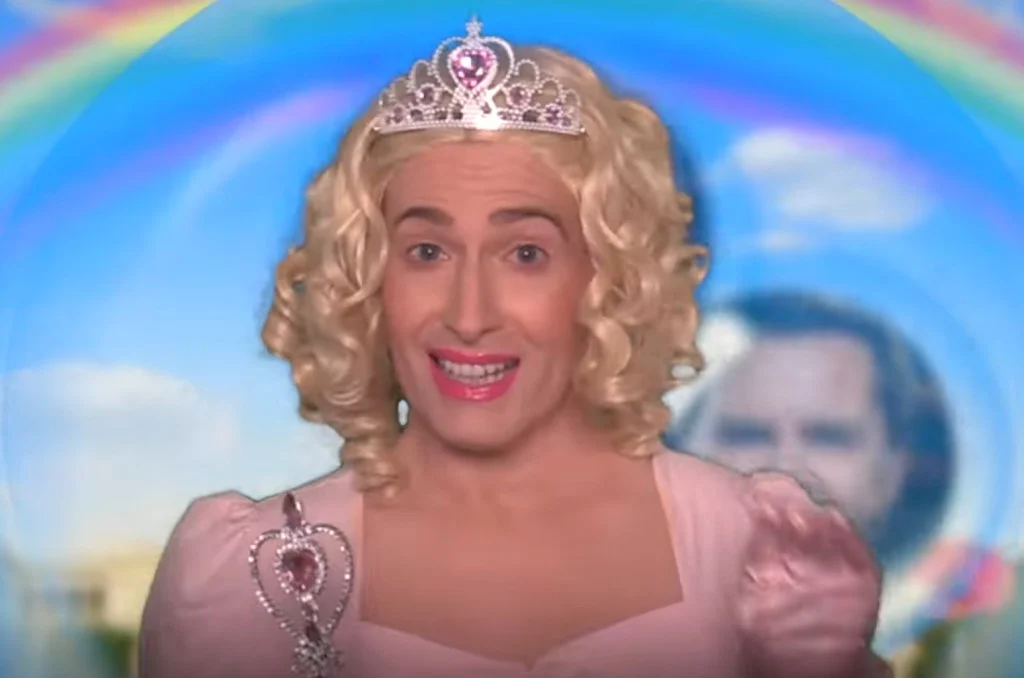Pride
Page: 12
Jordan Firstman did not set out to turn videos of him reading inherently ridiculous sentences into a running, viral piece of internet lore — it just turns out he’s exactly the right person to spin twisted confessions into comedy gold.
“I think I just have the kind of personality where nothing really shocks me,” he tells Billboard over Zoom, before quietly chuckling to himself. “I think I have something wrong in my brain where I cannot understand that people would be shocked over something.”
Firstman has been posting his Instagram series Secrets — in which his followers submit anonymous sentences disclosing some of their wildest personal tidbits — since the pandemic. Taking simple messages ranging from the mundane (“I voted third party”) to the truly absurd (“I k-holed in a guys bathroom on the 1st date n robbed him”), the comedian started to slowly transform some of his favorite secrets into short songs. Next month, the singer will bring his long-running gag to a brand new format with his debut album.
Trending on Billboard
Secrets, due out Friday, April 4th via Capitol Records, takes those same direct messages from fans and transforms them into brand new songs — the first of which (“I Wanna See My Friends’ D–ks”) fans will get to hear on Thursday (March 14). Spanning genres and subject matters, the album plays back to front as a raunchy, raucous ride through Firstman’s unique comedy lens. Plus, he adds: “The songs sound f–king amazing.”
Below, Firstman chats with Billboard about the origins of his Instagram series, how he scored a major label record deal and why modern pop stardom requires singers to have comedy chops.
Take me back to how the Secrets Instagram series started: what made you want to take your followers’ deepest, dumbest secrets and turn them into content?
It was a very pandemic thing; I had the idea to use the questions box to ask [for secrets]. I actually was kind of making songs out of them pretty immediately, just by myself with no beats or anything. I think the character limit means you cannot get into full stories, so they just felt like these little soundbites that were great to make fun of. To this day, who knows what’s real and what’s not, but I try to just use the ones that feel real.
I know you’ve referred to this as your “indie” series behind something like your very successful Impressions series — at what point did you realize that Secrets was really hitting a nerve with your audience?
It’s such a social media answer, but this was a way to just have this immediate connection with your following. I’m far from the first person to do this — there was stuff like PostSecret back in the day. Kind of like comedy, you cannot own the style, but you can own how you do it. So, I think what’s made it stick with my followers is just, I guess, my own sensibility and my own take on things.
At what point did the idea occur to you that those songs you were making could become an album?
I guess about a year or two ago, I had just been compiling these free MIDI files of different genres, and I would just play them in my apartment when I was bored. I have this friend, Brad Oberhofer, who is a brilliant musician, and I asked him if he would want to do one live with me, and that was the beginning of the new era of Secrets. We just kind of became a great team, and the songs were really fun. It wasn’t until this summer that I was like, “Ok, so we should start recording a couple of these and see what we get.” It became clear within a week or two that there was something there. I asked a couple other friends to start helping out, and within that first month, I think I had 10 or 12 songs recorded, I had a record deal, and it all happened really fast.
How do you go about selecting which submissions make for the best songs, versus which ones are just good for normal Secrets submissions?
When I’m doing them with Brad, I probably get anywhere from 5,000 to 10,000 secrets every time I do it. And so there is this kind of pressure every time we do it, so I do get drunk. [Laughs.] It’s kind of the only way I can move that fast, because we usually do these in about an hour, and we’ll do anywhere from 10 to 20 mini songs. The more we’ve done, the more we’ve wanted more production in there, so it’s not just us and a guitar, it’s us having this very fast live setup. We just scroll really fast, and whatever pops up, we just do it. It’s become a very instinctual thing. Like, yeah, “My Sister’s Tryna F–k & She Needs to Chill” is obviously a country song. Obviously! But we’re working so fast that we don’t have time to think about it.
But then on the album, luckily, all of the secrets are logged [on Instagram]. So I’ve gone through my archive and I found so many good ones. I’d say a little less than half of the album are secrets that I haven’t made songs out of yet, but that I was like, “Oh, this is a perfect premise for a song.”
In working with Brad, as you’ve been putting these together, have you started to kind of find the sound that you’re most comfortable with? Or is the eclectic genre approach very much the point?
There is a major level up that happened on the album. It’s truly every genre — there’s an amazing jazz song, there’s a Nirvana-style song, there’s a funk song, there’s a post-punk song, there’s a Central Cee-type song where I rap. We’re probably missing, like, classical? But on the deluxe, I do want to have an insane song title, and then just have it be classical music with no lyrics.
Was there any part of this process that proved to be a challenge for you?
The songs are kind of gendered, and the titles immediately tell me if it’s a boy or a girl singing it, and so there are some songs that are absolutely girl songs. I do, however, have a male voice, so it became a question of, “How do I sing this song from a woman’s POV?” On at least one of the songs, we do pitch me up a little bit, but it’s still my cadence. There’s one almost-Lilith Fair-style ’90s lesbian song that was really challenging to find the right vocal tone for.
Let’s talk a little about the record deal — how did that process start, and why did you go with Capitol?
So basically, I have four main producers now — Brad, Blake Slatkin, Zach Dawes and Sega Bodega. I have really good people, so now the songs sound f–king amazing. But Blake and I had a session, and within an hour, we had the single, done and ready to go. We knew it was a f–king smash. After that, we sent the record over to Capitol. I went in literally the next day to play them a couple of songs, and then they were just like, “Yeah, we would like to do this with you.” I didn’t even really meet with other people, because it was like, “They get this, and they’re going to do it in the right way.” They understood it so well immediately, so we just went for it.
I remember the next week, I went into a big boardroom with the chairman of Capitol and president and the vice president, and I played them “My Sister’s Tryna F–k & She Needs to Chill.” And they got it! It was very aligned, the whole experience just felt right. I don’t know, sometimes there’s this rhetoric [from artists] of “F–k the labels,” and I’m sitting here like “I don’t know, they’ve been great!” [Laughs].
Comedy music has been picking up some steam over the last couple years, with people like Bo Burnham and Tom Cardy earning big viral songs in the genre. Why do you think this genre is having that moment right now?
I think music is now bigger than it’s ever been, and then comedy is so inherent to music right now. Like, you can’t really be a musician right now if you don’t have a sense of humor. Look at Sabrina Carpenter — in a way, she is making comedy songs! And Lil Nas X! With social media, everyone has almost had to turn into a comedian to thrive.
It’s interesting — this is definitely a comedy album, for sure, but it’s almost some songs more than others [are comedy songs]. When I think about what I’m doing, to me, it’s not in line with most of the comedy albums that have been out lately. I would actually compare it more to something like Bloodhound Gang — they’re real songs that are also funny. The joke isn’t the main part of the song, but they are still funny.
This is a huge time for you with this album, the success of English Teacher, your upcoming role in Rachel Sennott’s comedy series — what are some things that you’re still hoping to accomplish in the months and years to come?
It’s a big year of firsts for me, and I kind of just have to do the work. I’m excited to see what sticks. You can’t be attached to any real outcome, but I don’t know. Everyone who hears this music just really likes it, and so I have a good feeling about this. It’s been a slow and steady build, and it’s starting to feel like the projects this year are the things that I’ve been really prepared for. So, I’m just excited to see the response.
With RuPaul’s Drag Race bringing back their Rate-a-Queen system for season 17, Billboard decided to rate each of the new queens every week based on their performance. Below, we take a look at the roast challenge to see which queens delivered the best jabs. Spoilers ahead for episode 10.
Even seasoned comedians will tell you that the format of a roast is inherently hard. But RuPaul’s Drag Race has never shied away from giving their queens a tough challenge. So, in the infamous words of Farrah Moan: “Let’s get this roast a-cookin’!”
On last week’s episode (aired Friday, March 7), RuPaul invited the eight remaining queens of the season to perform in the show’s inaugural Villains Roast. Bringing back recent alums Kandy Muse, Mistress Isabelle Brooks and Plane Jane as the guests of dishonor on the show’s format, Ru tasked the queens with writing up their rudest (and funniest) material to lampoon the villains of seasons past.
You would expect comedy killers like Onya Nurve and Suzie Toot to be the shining stars of this episode, but Lana Ja’Rae and Lydia Butthole Kollins proved that, even at this late stage of the competition, big swings can pay off. Both queens skewered the villains dais with ease, surprising both the judges and the audience at home with their quick-witted jokes on the main stage, where Lydia ultimately took home the win.
Yet even in an episode where two previously faltering queens proved themselves, all eyes were fixed on the drama of the week between Jewels Sparkles, Arrietty and Lexi Love. After Jewels gave both of the queens starting positions in the performance lineup that they didn’t appreciate, both Lexi and Arrietty took two different approaches to their performances. Lexi, ever the victim of her inner saboteur, spent the entirety of this episode wrapped up in her head, failing to deliver on her jokes on the main stage.
Arrietty, meanwhile, leaned hard into her derailment by stealing Jewels’ jokes, effectively dragging her former friend down with her into the bottom two. In a fiery Lip Sync For Your Life to “YA YA” off Beyoncé’s Cowboy Carter, Jewels stormed the stage, channeling all her fury into her stellar performance and leaving Arrietty as the latest queen to get the chop.
Below, Billboard takes a look back at episode 10 and ranks where our remaining contestants lie based on this episode and the season as a whole:
ELIMINATED: Arrietty
Image Credit: Courtesy of MTV
After taking some time to figure out his next move, Lil Nas X is back with a brand new outlook on life — and he’s ready to finally share it with you. In a surprise drop on Monday (March 10), Lil Nas X unveiled his new single “Dreamboy,” the latest track off his forthcoming album […]
Lil Nas X‘s “Dreamboy” will be with you in your dreams tonight. The new track is a surprise drop for Sunday evening (March 9), the rapper/singer, aka Montero, announced on the day of its release.
“NEW SONG DREAMBOY OUT TONIGHT!” he said in a social media reveal on Sunday.
When a fan posted “WHAAAAAAAAAATTT, AM I DREAMING??” as a reaction, Lil Nas X quoted their message and responded, “ur in dreamworld baby!”
The homepage on Montero’s official website directs visitors to pre-add or pre-save the artist’s new music on Apple Music and Spotify.
Trending on Billboard
“IT’S HOTBOX SEASON,” reads the page, which also hints there’s more to look forward to this week: “PRE-SAVE FOR SURPRISES.”
So far Lil Nas X has confirmed new single “Hotbox” is also arriving shortly, on Friday. He’d previously dropped a teaser for the track. Billboard reached out to a rep on Sunday to ask for further details, but didn’t immediately receive a response.
Both “Dreamboy” and “Hotbox” are leading up to the release of his forthcoming sophomore album, also titled Dreamboy. The new studio project follows Billboard Hot 100 No. 1s “Industry Baby” featuring Jack Harlow and “Montero (Call Me By Your Name),” from his 2021 debut full-length, and breakthrough hit “Old Town Road” featuring Billy Ray Cyrus, which spent 19 weeks at the top of the chart in 2019.
“Good evening, everybody. I would like for you to grab a glass of wine. Let me talk to you for a minute,” he says in an introductory clip of “Dreamboy” (the song) shared on Sunday. The visual shows Lil Nas X framed in a hot pink Dreamboy doll box.
“I was scared then/ I ain’t scared now/ I wasn’t ready then/ But I’m ready now/ I’m on the way/ I’m on the rise/ On the way, yeah I’m on the rise/ Mind your own business/ I’m minding mine,” he raps before naming some of his favorite things, including “long black dick,” “long conversations” and “cuddling with my cat,” then calling out the “stinky booty bitches” at church turning his fun into misery. “Bitch, I’m still making history,” he says.
Listen to the snippet of “Dreamboy” in the preview below.
Doechii is openly bisexual, as the Swamp Princess came out in a 2022 interview with GQ. The rapper faced off with her DJ Miss Milan on Friday (March 7) for an episode of Hot Ones Versus, where the duo revealed their red flags when it comes to the dating scene. “Is it being on the […]
After spending much of her career advocating on behalf of the LGBTQ+ community, pop icon Madonna is speaking out against the mistreatment of trans people everywhere. In a post to her Instagram Stories on Thursday night (March 6), Madonna shared her candid thoughts on the current wave of anti-trans extremism making its way around the […]
Happy Mayhem day to all who celebrate! In between streams of Gaga’s new album, allow us to provide a few other new songs from queer artists to fill your ears with this weekend. Billboard Pride is proud to present the latest edition of Queer Jams of the Week, our roundup of some of the best new music releases from LGBTQ+ artists.
Explore
See latest videos, charts and news
See latest videos, charts and news
From Lady Gaga’s long-awaited new album to Doechii’s surprise single drop, check out just a few of our favorite releases from this week below:
Trending on Billboard
Lady Gaga, Mayhem
“Choke on the fame and hope it gets you high,” Lady Gaga growls on “Perfect Celebrity,” an early standout from her bombastic new album Mayhem. “Sit in the front row, watch the princess die.” It’s a fitting line for the rest of Mayhem, an album where Gaga deals face-to-face with the reality of her own stardom nearly 20 years after her debut. The project shifts constantly between genres, whether she’s crafting disco-inspired club bangers (“Zombieboy”), earnest ballads (“Blade of Grass”) or ’80s glam-pop-rock (“Vanish Into You”). Some will call it a “return to form”
Doechii, “Anxiety”
Doechii is ready to have her big solo moment — after appearing on Sleepy Hallow’s 2023 rendition of the Gotye-sampling single, the swamp princess offered her own take on the songs fiery rap verses. Employing her top-tier flow and some acrobatic lyrics, Doechii continues to prove why she’s one of the hottest emcees currently in the game, even when she’s spitting bars about her own crippling apprehension.
SASAMI, Blood on the Silver Screen
In a recent statement, pop singer-songwriter SASAMI said that her new album is all about “learning and respecting the craft of pop songwriting.” By that simple standard, Blood on the Silver Screen is a masterpiece. Throughout this sweeping, dynamic new album, SASAMI toys with convention, genre and persona through some of her most detail-oriented songwriting to date. Combine that with the project’s high-octane, maximalist production, and you have one of the most thrilling albums of the year on your hands.
Elton John & Brandi Carlile, “Swing for the Fences”
Isn’t it nice to see two icons just having a blast together? That’s exactly the vibe on Elton John and Brandi Carlile’s “Swing for the Fences,” a raucous, joyful new anthem that sees the pair encouraging those listening to take their shot instead of fading into the background. Carlile and John’s voices blend naturally into an uplifting soft-rock anthem, and one that’ll make you want to try your hand and whatever you’ve been holding yourself back from ASAP.
yeule, “Skullcrusher”
After the glitchy, dark masterpiece that was 2023’s Softscars, fans of ambient synth-pop darling yeule have wondered what their next project might sound like. With her second single “Skullcrusher,” the artist is letting their fans know exactly what’s to come. On this brooding, spooky new single, yeule ratchets up the tension with each passing moment, only to unleash her pent up angst on the fiery chorus: “All I want to do is love you,” they pine. “But all you want to be is in a dream.”
Bob the Drag Queen, “Queen of the Underground”
In his forthcoming novel and on his stunning new single, Bob the Drag Queen asks what may seem like an odd question: if Harriett Tubman came back to life, what would she have to say about her legacy’s impact on the world today? On “Queen of the Underground,” Bob seeks to answer that very question, filtering the abolitionist’s voice through the lens of pounding hip-hop as she lambasts the state of affairs in America today. With bar after bar redifining Tubman as an American icon of our current moment, Bob delivers one final message to drive the point home: “No one is more hopelessly enslaved than the one that falsely believes he free.”
Check out all of our picks on Billboard’s Queer Jams of the Week playlist below:
From ballads like “Die With a Smile” to dance-pop anthems like “Abracadabra,” see where every song on Gaga’s long-awaited seventh studio album wound up on our ranking.
From the moment she blasted onto the pop scene in 2008, Lady Gaga became a lightning rod for public speculation.
Every inch of her persona — her outfits, her lyrics, her anatomy — was scrutinized by fans, critics and media outlets alike. When new projects were announced, speculation would follow; what would Gaga do this time? When some of those projects fell commercially short of the stratospheric bar she’d set at the foundation of her career, that speculation curdled into declarations: Gaga’s reign as pop music’s paragon must be over.
Nearly two decades after that industry-reshaping debut, the pop icon is still struggling to manage the weight of those expectations. “Ever since my first album, I did listen to what people would say. ‘Will she outdo herself? Can she top herself? Can she live up to this? She needs to evolve, she hasn’t changed enough,’” Gaga tells Billboard. “There was a lot of noise.”
When it came time for her to embark on creating her seventh studio album, that noise hadn’t gone away. Fans, who had dubbed the untitled project “LG7,” were sharing wishlists of what they wanted to see Gaga do next. What genre would she tackle this time? Would there be high-profile features? Could the long-awaited continuation of “Telephone” finally materialize?
Trending on Billboard
Sitting in a New York hotel’s conference room, Gaga’s shoulders relax. “Taking the pressure off myself helped me to value what I feel really matters about me as a person,” she says, her face softening. “When you put your artistry first, and then you take the other stuff away … it gave me so much dignity. And I didn’t realize how much I was craving that.”
Mayhem, Gaga’s long-awaited new album (out Friday, March 7 via Interscope Records), doesn’t concern itself with expectations. It does play with them, though, changing up the sonic and thematic spaces it occupies before it can be boiled down into a single idea. In a musical landscape concerned with “album eras,” Mayhem refuses to be easily categorized. Ranging from grinding industrial techno one moment to soulful, heartfelt balladry the next, Mayhem makes its title a thesis statement — the throughline is disorder.
That pandemonium was established early in the process of making the album, thanks to Gaga’s own sense of experimentation in the studio. When setting out to write and record her new project, the singer says she found herself taking a piecemeal approach to her creative process, a welcome change from past efforts.
“There have been times in my career where I had an idea in terms of how to conceptually approach a record. But I would say that this album, from start to finish, was like pieces coming together,” she says. “I did not want to turn it into anything artificial, I really wanted to allow myself to just follow the music. By doing that, it started to slowly remind me of my earlier work.”
As she began piecing her music together, Gaga created a mantra for her work on the album: “Go with the chaos.” Instead of laboring under the expectation of finding a sonic or thematic subject, she instead opted to embrace the tumult itself and see where it took her.
Part of that process involved bringing in a new suite of collaborators — working closely with co-executive producer Andrew Watt and collaborators like Cirkut and Gesaffelstein, Gaga went about crafting an album that sounded like her while still bringing something fresh to the mix. As Cirkut explained to Billboard in November 2024, that wasn’t always easy to balance in the studio. “Do you do something so different that you move away from the things that you are known for?” he asked. “But if you just do the same thing that you’ve been known for, does that end up feeling like a ‘more-of-the-same’ type situation?”
Gaga says that she found herself leaning hard into her own intuition during the recording process. “I think what I look for in collaborators are people that will uphold me as a woman in the studio and follow my vision,” she explains. “I tried musically to work with people that I could push myself with — so that it wouldn’t be exactly what you’ve heard from me before, but there is the DNA of my approach to pop music.”
That approach to her pop sound pays off in spades throughout Mayhem. On early highlight “Perfect Celebrity,” Gaga takes the ruminations on fame that she made a career out of and twists the knife that little bit deeper. Serving as a kind of mirror image to 2009’s “Paparazzi,” “Perfect Celebrity” puts much of the onus back on Gaga as she examines why she fought for fame so vigorously. “I’m made of plastic like a human doll/ You push and pull me, I don’t hurt at all,” she sings. “I talk in circles because my brain it aches/ You say ‘I love you,’ I disintegrate.”
“I had this feeling inside myself of, ‘You can’t write about that. You can’t show this part of yourself.’ And then I was like, ‘No … embrace it, what do you want to say?’” Gaga recalls of the writing process. “It became complicated so quickly; owning that I wanted to be a star, and that it did bring a lot of complication to my life. So then, it’s also that anger that I felt towards myself, that I brought this on myself.”
She takes a beat before continuing. “I was nervous to put it on the album. But part of Mayhem is that I just put it all out there,” she says.
That’s not to say all of Mayhem is shrouded in darkness — later tracks on the album, like the campy disco banger “Zombieboy,” show Gaga shrugging off that self-seriousness to embrace pure pop hedonism. “Part of my personal mayhem is that it’s fun, and that’s why I keep doing it,” she says. “That’s what makes it complicated — it is dark, and it pulls me away from myself, but it’s also the best time. It’s that point where you’re at the party, and you’re totally numbing out, and you’ve fully accepted that by the morning you are not going to feel well, but you’re fully in it.”
As experimental and twisted as Mayhem gets, it’s clear that the early teases of the album have struck a chord with global audiences. “Die With a Smile,” the project’s closing track featuring Bruno Mars, spent five weeks at No. 1 on the Billboard Hot 100 — that’s the second longest stay any of the star’s singles have held in the chart’s top slot, just one week behind her 2011 behemoth “Born This Way.” Meanwhile, “Abracadabra” debuted at No. 1 on the Hot Dance/Pop Songs chart — where it remained for three weeks, — and continues to float around the Hot 100’s top 40.
Gaga is still in awe at both tracks’ immediate success. “I am really grateful, and I am really beside myself,” she says. “I never expect anything like this, because you never know, all you can do is your best. This is really a true honor and privilege.”
Along with becoming one of the biggest hits of her career, “Die With a Smile” also earned Gaga her 14th Grammy — she took home the 2025 trophy for best pop duo/group performance alongside Mars. When she took to the stage at the February ceremony, though, Gaga made sure that she shared her win with the trans community, reminding the audience at home that “trans people are not invisible” and that they “deserve love.”
Looking at the current administration’s ongoing attacks against the trans community, Gaga doesn’t mince her words. “I think it is abysmal, and horrible, and violent and wrong,” she offers, matter-of-factly. “I just want to extend all of my love and gratitude to the trans community for showing us so much strength and love.”
She often shares that same sentiment about her fanbase, the Little Monsters, whom Gaga credits with “having this conversation [with me] through art and fashion and politics for a long time.” While her fans have always been active and outspoken in their support for her, Mother Monster has noticed a shift in her following as of late.
“I’ve seen Little Monsters be so amazing for almost 20 years. I haven’t seen us like this in a long time,” she says, pointing to the swath of videos fans have shared across apps like TikTok and Instagram learning her choreography and creating new art out of her music. “Between the dancing, the makeup. the hair, the costumes, it gives me so much life, and I am really honored. All I ever want to do is make something that you press play and you feel good for the duration of the record, and maybe you play it again.”
That activation on her base’s part may have something to do with a similar activation on the singer’s part — fans on TikTok have noticed how frequently Gaga comments on fan-made videos, with some even referring to the phenomenon as “conjuring” Gaga.
“That is me,” Gaga confirms about her TikTok comments, smiling. “That’s the way we always were — it just wasn’t to this extent, because we didn’t have the same tools to talk to each other.” After a pause, a look of incredulity crosses Gaga’s face. “I just … how could I not? I always say that I have the best seat in the house, because I get to watch the fans.”
With her fans fired up for a new album, her singles finding massive global success and her meticulously-crafted album ready to release, Gaga takes one last look at a career’s worth of expectations before dismissing them. “I do think that I felt a lot of pressure, over the years, to prove myself as a musician,” she says. “And that sometimes stopped me from having fun. So, I tried to have a lot of fun making this record.”
The world has been watching in shock as President Donald Trump and billionaire Elon Musk break from long-held norms and attempt to concentrate political power in the presidency. Now, internet sensation Randy Rainbow is taking the pair to task for their latest executive actions.
In a new video posted Wednesday (March 5), Rainbow created another fake interview between himself, the president and Musk, where he called out the pair for making massive cuts to federal programs while attacking marginalized communities.
“Look, I realize the government might be a little bloated — trust me, I know bloated when I see it,” Rainbow says in the clip while gesturing at Trump and Musk. “But you two dime-store dictators are tearing down institutions and eroding our rights. It’s starting to feel super constitutional crisis-y.”
As is tradition in Rainbow’s parody videos, the clip then transitions to a parody version of “Defying Gravity” from Wicked, in which Rainbow begins to unravel “the same routine” that Trump is using from his first presidency. Playing both parts of Glinda and Elphaba, the comedian lambasts the president’s lack of care for the very concept of the power of the people.
“Close your mouth, you creep/ It’s time to cry, ‘Buh-bye democracy,’” Rainbow sings. “And watch this guy defy democracy/ Would someone stop this clown?!”
As the video continues, Rainbow’s costumes change constantly between the pink frocks of Glinda, the green face of Elphaba and the furry bodies of the flying monkeys as he begins to take shots at the Democrats’ inactivity in combating Trump’s proposals. When he finally arrives at the song’s iconic final moments, he extends the track just so he can fit all of his worst adjectives about Trump into one musical phrase.
“And no one in the whole U.S./ Can save us from this bleach blond mess?/ Who’s bats–t, cruel, obsessed with walls/ With ears of steel and tiny balls,” Rainbow sings while floating above the White House. “An actual convicted felon/ Dragging us all down to hell/ A narcissistic, instigating/ Fascist crook who feeds on hating/ Anyone outside his cult/ No porn star, Dem or sane adult/ Is ever going to stop this clown!”
Wacth Rainbow’s full Wicked parody above.

 State Champ Radio
State Champ Radio 